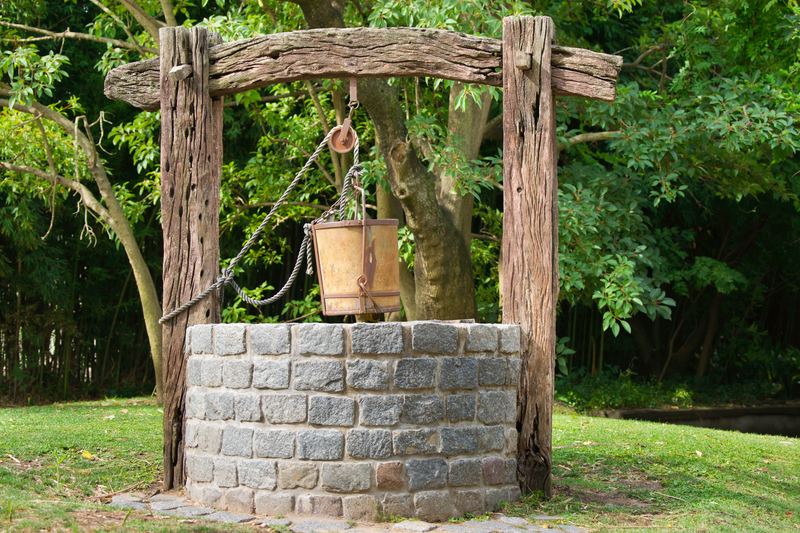The first option for a water source for your homestead is the city water supply, which you may or may not be able to access depending on how close you are to city limits. However, should a catastrophe occur, one of the first things compromised may be the public water supply, which is why it's a good idea to have your own. Here are a few:
Well, well, well
Well, well, well…have you considered a well?
Excuse my play on words, but have you? If not, why?
I know digging a well can be expensive. Like upwards of $10,000 expensive. But it is a solid water source completely off-grid. I’m not saying all wells will last forever because we all know that they won’t.
However, it is still a solid option.
So if you are looking at land that doesn’t have a water source already on the property, don’t give up. Instead, dig below the ground. There could be a great source of water running right under your feet.
And another perk to a well, if you consider yourself a homesteading prepper, is that even if city water is contaminated your water source most likely will not be.
Plus, even if the entire grid shuts down you still have a viable water source. But I will go into greater detail with that in a bit.
Go Wind Powered
So you’ve decided to go with a well. That’s great news. We have one and absolutely love it.
When we lived in the city years ago, we were on city water. I had never been where I had the option of a well. But now, you’d be hard pressed to make me go back. I love knowing that my water source comes from a river up the road.
My family and I are trying to be prepared in dealing with emergencies. We need to have a solid water source that could keep us and our animals alive for quite a while if need be.
And what got me thinking about this was a few years ago, we had a huge storm come through our area.
We were without power for close to a week.
But thankfully I had started storing water and it was enough to carry us and our animals through for that time period.
Yet, what if the next catastrophe left us even longer without power? For us, no power means no water.
So I began looking for alternative options for power.
And the two biggest options that keep reappearing over and over are solar and wind power. If you live in a flat are then wind power might be a good option for you. You can learn more about wind power here.
Plus, this resource will help you learn more about the DIY side of wind power.
Go Solar
I think I’ve mentioned before that I live in the foothills. So wind power probably isn’t the best option for my family and me. That’s why I hope to one day (soon) go solar.
I have multiple reasons for this.
First, I’d love to ditch my electric bill. Part of being a homesteader is living as frugally as possible. And my electric bill obviously requires me to spend more money.
Second, I’d love to know that in the event of an emergency that my power will not go out. As long as the sun keeps shining on my home, my family and I should have power.
But the third and probably most important reason is water.
When we first moved to our area, we rented a house for a year.
And this house was an old farmhouse that actually had an old well that they used for water when the house was first built. It still had the pulley system on it. Which was great in case of an emergency, and you needed water.
But once we moved to our homestead, the house that came with it only had an electric powered well.
So now, when the power goes so does our water. Which is where solar power comes in. If I had solar panels powering my water then even if the whole grid is disrupted, theoretically, I should still have water.
And this is great news for my family and animals.
Do you have an off-grid water system? What did you choose? What do you think of these options? Share your thoughts in the comment section below!
Article Source: Morning Chores
